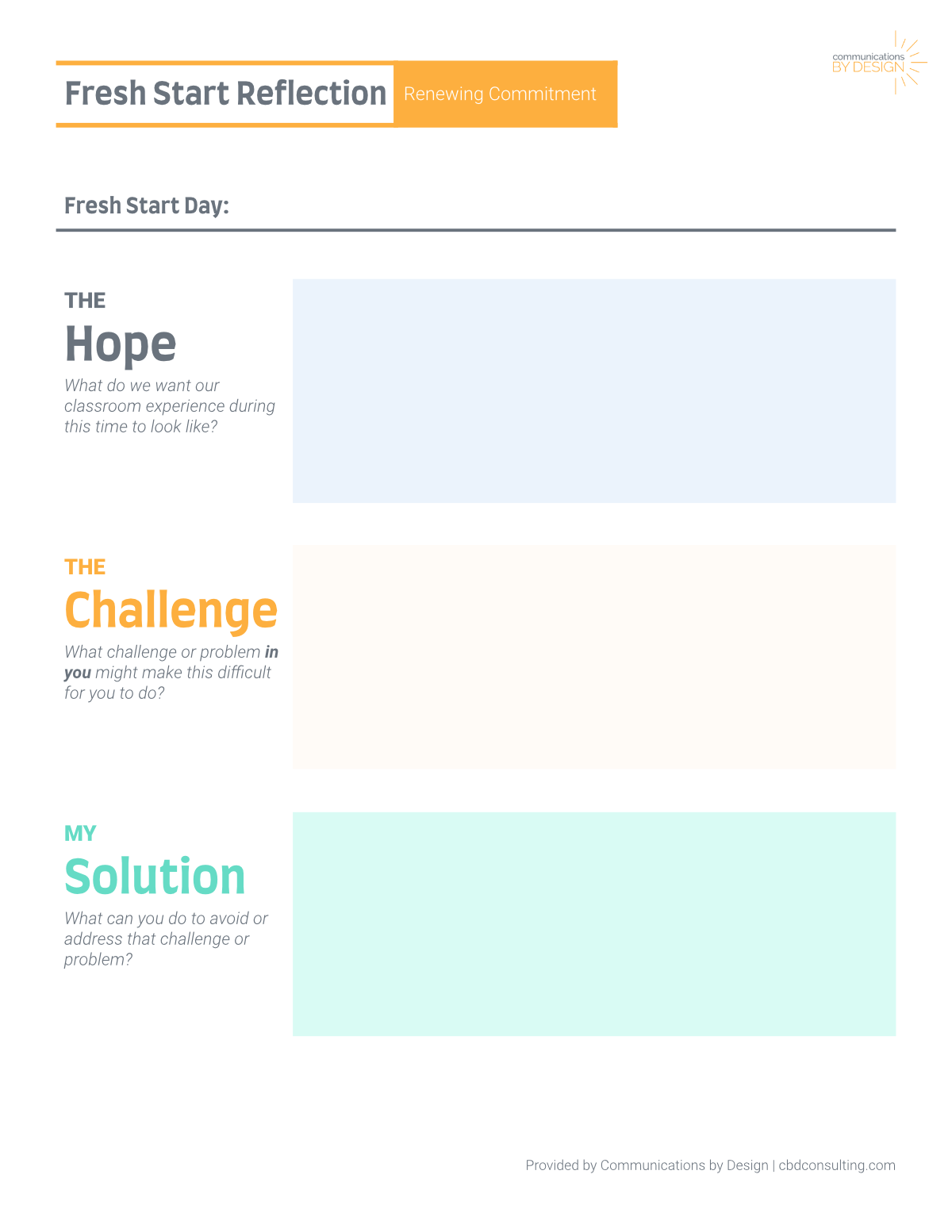
The Fresh Start Effect, as Daniel Pink describes it in this 2-minute video, is the benefit we find in new beginnings. Specifically, it is the increased optimization of starting or recommitting that happens on certain days. The researchers behind the Fresh Start Effect called these certain days Temporal Landmarks.
What are those days? Basically, they are any day of the year that we associate with beginnings, newness, or significant anniversaries. Examples include the first of the year (the biggest one), the first day of the month, the first day of the week, the day after a vacation, or the day of a personally important event (religious holiday, birthday, and more). And those are only some of the 86 days that Pink identifies.
As educators, we should take special note of this reality. In essence, what we have here is a universal precondition in our students for higher and lower likelihood of behavior change. Simply put, when it comes to managing our classroom experience, we must make deliberate use of the fresh start effect.
So let’s figure out how to do that in a way that guarantees a better finish to the school year.
The Fresh Start Effect and Spring Break
The most obvious connection here, given the timing of this email, is spring break. Being a vacation and a new month (or near enough) and a new week (coming back on a Monday), we miss a huge opportunity by not leveraging the return from this break.
Most importantly, this is an essential moment to address expectations and anticipate challenges. April and May are wild months. Energy levels are unchartable. Attention is unwieldy. Testing requirements are absurd. Sunshine is malicious. And summer is not half as close as it feels but twice as far as it should be.
Aware of this, we do everyone involved a great service by stating the challenge in light of the already firmly established norms and expectations. We do this in three simple steps:
- STEP 1: Remind students of our expectations, both rules and consequences. This should not be a long diatribe or a veiled personal reminder to common offenders. It should not be emotional or associated with any past difficulties. Just note that given the break and the change into spring, it’s a good time to remind everyone.
- STEP 2: Acknowledge the current challenges. Be direct about the nature of the coming months and the unique challenges of this time of year, but again, be impersonal and unspecific. It’s the nature of this time for all of us. We will all be challenged by it.
- STEP 3: Anticipate the problem and a possible solution. (Those familiar with the WOOP strategy may find this a great time to implement it!) Without being too coercive, encourage students to predict how the upcoming months may uniquely challenge them individually. Model this thinking in front of them. With our own specific problem in mind, reflect on some action or behavior that could help avoid or resolve the problem, and commit to doing it. Again, model this thinking in front of students.
If helpful, we have included a sample of a reflection page that may or may not be a fitting organizer for this discussion (click here for an editable copy in Google Docs). Though you may find it more effective to be less formal with this kind of reflection.
What else is involved?
The most deliberate implementation of this idea will include an ongoing reflection (often best to do at the end of the week). Reflect on that commitment to act or behave in a certain manner. Reflect along with students, and together remind each other that though it’s a difficult time, we’ll make it through.
And as always, be relentlessly consistent with monitoring and enforcing the classroom expectations and consequences.



